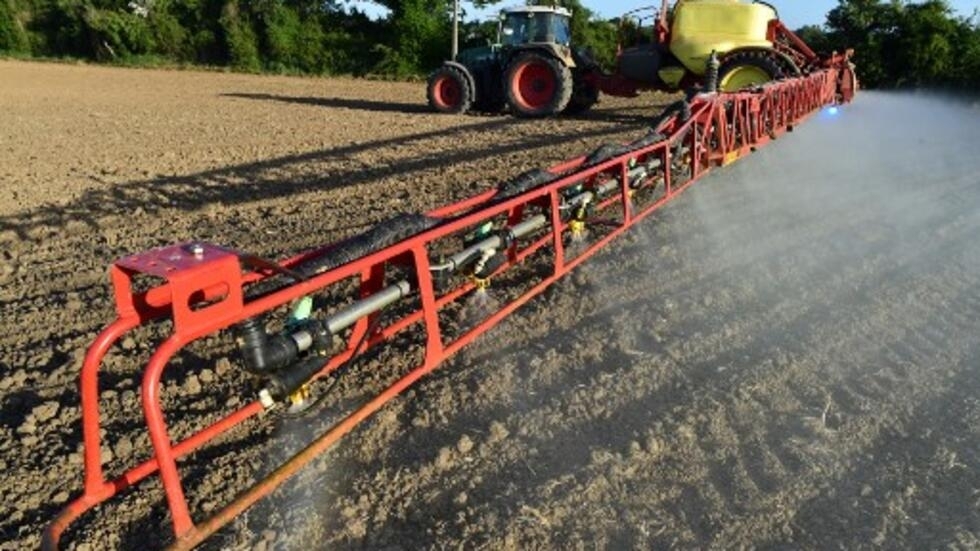EU (Parliament Politic Magazine) – Farming leaders in the UK have expressed their intention to closely monitor EU glyphosate regulations. This follows the failure of member states across Europe to reach a decision on the continued use of glyphosate.
The proposal for a 10-year renewal of glyphosate approval will now be presented to the Appeal Committee in November. The European Commission had presented its draft glyphosate regulation to the SCOPAFF (Standing Committee on Plants, Animals, Food, and Feed) earlier this month. However, the necessary majority of votes (55 percent) for adoption or rejection was not achieved.
UK Might Face Pressure To Align With EU
While Matt Culley, the Chair of NFU Combinable Crops, expressed appreciation that the EU did not opt for an outright ban on glyphosate, he emphasized the need to monitor whether the UK might face pressure to “align” with Europe in the future.
He stated, “Although we have the freedom to use glyphosate until 2025, it is imperative to closely monitor developments within the EU. For instance, if the EU introduces pre-harvest restrictions or reduces the use of specific ingredients, these changes could eventually impact the UK. Our focus now is to initiate discussions about the post-2025 landscape and to what extent we may need to align with the EU.”
The European decision needs to be made by December 14, as the existing approval for glyphosate expires on December 15. The ongoing use of glyphosate had faced scrutiny from key EU members, including France and Germany.
EU Member States Fail to Reach Consensus on Glyphosate Renewal
EU member states have not reached a consensus regarding the European Commission’s proposal for a 10-year extension of glyphosate’s use, a contentious chemical present in herbicides.
During a vote on Friday within the Standing Committee on Plants, Animals, Food, and Feed (PAFF) after two days of technical deliberations in Brussels, several member states, including France, abstained. Austria, Luxembourg, and Croatia voted against the proposed extension.
As there was no clear qualified majority either in favor or against the proposal, an appeal committee will now reassess the Commission’s proposal, and a second vote is scheduled for the first half of November.
On Friday, a European Commission spokesperson confirmed that there remains an opportunity for “dialogue” among member states to find a mutually agreeable solution. Many European capitals have voiced apprehensions regarding the potential effects of this potent herbicide on both biodiversity and human health.
Should a qualified majority not be reached in November, the Commission will take a definitive decision regarding the renewal.
European Commission Proposes Glyphosate Risk Mitigation Measures
In September, the EU executive proposed extending the approval of glyphosate’s use within the EU market for an additional 10 years beyond its current expiry date of December 15 this year. This recommendation followed a July assessment by the bloc’s food safety agency, EFSA, which identified “no critical areas of concern.”
However, EU officials acknowledged that the EFSA analysis had notable data gaps and had not arrived at conclusions on certain aspects, particularly those related to consumer diets.
Glyphosate has been a subject of controversy ever since the World Health Organization‘s cancer agency concluded in 2015 that it was likely carcinogenic to humans.
Earlier this week, Euronews interviewed Sabine Grataloup, whose son Théo suffered severe malformations at birth due to exposure to a glyphosate-based herbicide while he was in his mother’s womb.
Read More: Britain’s Science Agreement with the European Union in the Post-Brexit Era
Austria, Luxembourg, and the Netherlands’ Stance on Glyphosate Renewal
In an effort to persuade member states, the European Commission had proposed “risk mitigation measures,” such as implementing ten-meter buffer zones around sprayed areas and using specific nozzles to minimize “spray drift.”
The Pesticide Action Network (PAN) Europe, an NGO that had vehemently criticized the Commission’s proposed renewal, expressed its approval of member states’ decision to postpone the decision.
Austria and Luxembourg had previously declared their opposition to the renewal. Notably, Luxembourg is the sole EU member state that has temporarily banned glyphosate in the past.
The Dutch Agriculture Minister, Piet Adema, affirmed that the Netherlands would abstain from the vote, stating that their “nuanced position” would not be adequately represented by a simple vote for or against the proposal.
In September, the German Agriculture Minister highlighted concerns about glyphosate’s impact on biodiversity and stressed the necessity for a coordinated European-level phase-out.
On Friday, Italy voted in favor of the 10-year extension but with certain conditions, including the restriction of glyphosate use during harvest collection, as reported by diplomatic sources.


